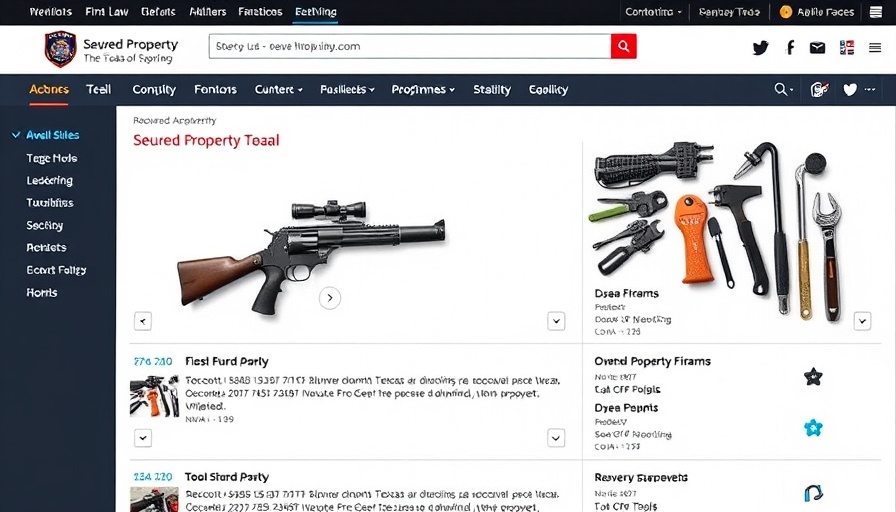
Understanding Texas House Bill 1261: A New Era for Property Reclamation
In a significant move to enhance transparency and ease of recovery for property seized by law enforcement, Texas has enacted House Bill 1261. This new law fundamentally changes how residents can access information about their seized assets, streamlining a previously cumbersome process. It mandates law enforcement agencies to either inform the last known owner directly or publish relevant information online. This dual approach aims to ensure that individuals can promptly reclaim their belongings—or at least be made aware of their status.
Why This Law Matters: Empowering the Community
The legislation comes as a response to long-standing grievances about unclaimed property, with many citizens unaware that they could retrieve items previously in the hands of law enforcement. Items ranging from personal keepsakes to valuable electronics are now categorized under this new system. As highlighted by the Harris County Sheriff’s Office, having a dedicated webpage listing such items marks a significant advancement in public service and accountability.
Exceptions to Consider: What You Can’t Claim
While House Bill 1261 opens new pathways for claiming seized property, it is crucial to understand its limitations. The law does not apply to contraband subject to forfeiture—think illegal drugs or firearms—and specific beverages such as whiskey, wine, and malt beverages also fall outside the claimable categories. This distinction helps to streamline legal processes further and ensures that only eligible items are floated back to their rightful owners.
A Closer Look at Implementation: How It Works
The Harris County Sheriff's Office serves as a prototype for other agencies under the new law. They have promptly set up online resources that allow residents to search for their property easily. Proof of ownership is required for reclamation, which serves to protect against fraudulent claims. If an item goes unclaimed for 90 days after being displayed online, officials can either discard it or sell it, ensuring that the property does not linger indefinitely.
The Broader Context: Changes Across the State
House Bill 1261 is part of a series of hundreds of new laws that took effect in Texas on September 1. These legislative changes reflect broader trends toward greater accountability in governance and enhanced service delivery to residents. By familiarizing themselves with these laws, Texans can ensure they are well-informed and capable of navigating the legal landscape effectively.
Future Implications: A Model for Other States?
As Texas unveils its approach to property reclamation, there may be implications on a national scale. Other states observing Texas’s implementation may consider similar legislation in pursuit of better service to constituents. Should this happen, it might lead to a more uniform standard across states concerning the recovery of unclaimed property, enhancing consumer rights and transparency.
Actionable Insights: How to Claim Your Property
If you suspect that you might have property in law enforcement custody, take proactive steps to check the listings published on the Harris County Sheriff’s Office website. Alternatively, you can reach them directly at 713-274-9310 to inquire about potential claims. Being informed and responding swiftly could make the difference between losing your belongings and getting them back.
Conclusion: Advocating for Your Rights
For many Texans, House Bill 1261 is more than just a law—it’s a lifeline to properties that may carry significant personal or financial value. As awareness grows regarding the new procedures in place, citizens are encouraged to take action if they believe they may have seized property awaiting reclamation. Understanding your rights and the avenues available for property recovery is vital in today's complex legal system.
 Add Element
Add Element  Add Row
Add Row 



Write A Comment